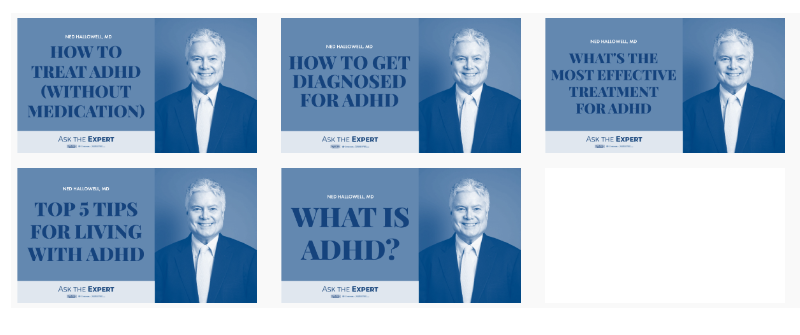Assessment and Diagnosis of Attention Deficit/Hyperactivity Disorder
Attention Deficit Hyperactivity Disorder (ADHD) is defined by a persistent pattern of inattention (for example, difficulty keeping focus) and/or hyperactivity- impulsivity (for example, difficulty controlling behavior, excessive and inappropriate motor activity). Children with ADHD have difficulty performing well in school, interacting with other children, and following through on tasks. There are three sub-types of this disorder: Predominantly Hyperactive/Impulsive, Predominantly Inattentive, and Combined Inattention & Hyperactive/Impulsive.
3 Overarching Features of ADHD
Inattention: Inattentive children may have trouble paying close attention to details, make careless mistakes in schoolwork, are easily distracted, have difficulty following through on tasks, such as homework assignments, or quickly become bored with a task.
Hyperactivity: Hyperactivity may be defined by fidgeting or squirming, excessive talking, running about, or difficulty sitting still.
Impulsivity: Impulsive children may be impatient, may blurt out answers to questions prematurely, have trouble waiting their turn, may frequently interrupt conversations, or intrude on others' activities.
Special Considerations
- ADHD is a condition that can affect people of all ages.
- Proper diagnosis relies on comprehensive clinical evaluation, considering member personal history, self-reported symptoms, mental-status testing, and early development problems.
- Adults with ADHD are likely to have an anxiety disorder, depression, bipolar disorder, or other comorbid psychiatric disorders.
- Collaboration with caregivers, behavior therapists, and schools/educators is key in first line approaches for children with ADHD.
Interventions and Resources
The following clinical practice guidelines help in the assessment, diagnosis, and treatment of ADHD:
The Centers for Disease Control and Prevention - https://www.cdc.gov/ncbddd/adhd/guidelines.html
American Academy of Family Physicians – https://www.aafp.org/home.html
PsychHub Education and Learning Available to You
Through our partnership with PsychHub, an online platform for digital mental health education, Molina network providers are able to access PsychHub’s library of educational courses and material at no charge. To create an account at no cost, please visit the Molina PsychHub landing page at https://resources.psychhub.com/molina . Create an account to find these and other relevant courses:

